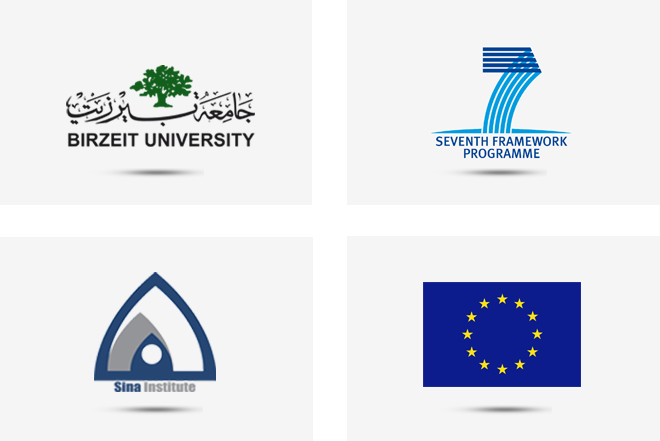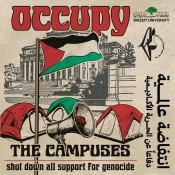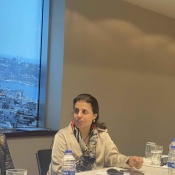Birzeit University Wins an EU-FP7 Project in ICT Industry
Birzeit University’s Sina Institute for Knowledge Engineering and Arabic Technologies recently won an EU-FP7 funded project called MOSAIC. The project aims to explore areas of cooperation between the information and communications technology (ICT) industries in the Mediterranean and European countries, in order to prepare them to participate in EU funding programs such as Horizon 2020.
The two-year project involves 13 partners from European and Arab countries, aiming to create Technology Platforms (TPs) in two regions of the Mediterranean: MED-TP1 covering Maghreb countries (Algeria, Morocco, Tunisia, Libya) and MED-TP2 covering Mashriq countries (Palestine, Jordan, Lebanon, Syria, Egypt).
Sina Institute Director Mustafa Jarrar stated that MOSAIC is a pioneer project of the institute that aims to link the Palestinian ICT industry with academia - not only for creating new business opportunities and networking with EU companies, but also for preparing the ICT industry to participate in EU programs. He added that all companies, large or small, have the right to participate and benefit from the program.
IT faculty Dean Ali Jaber elucidated that it is the faculty mission to support and build a partnership industry and he hopes that this project will add substance to the Palestinian ICT industry. The faculty and its research arm, Sina Institute, will continue serving Palestinian society by attracting international projects that provide the best opportunities for students, as well as the private and public sectors.
Although Sina Institute was only recently established, it is the largest ICT research center in Palestine and one of the few centers in the region specialized in Arabic and knowledge management technologies.
The institute has been awarded a grant from Google Int. for its research excellence in Arabic search engines and tools. It is also the coordinator and grant holder of several projects, such as the EU-FP7 SIERA project (for developing multilingual and multicultural knowledge sharing technologies), the Arabic Ontology project (for building an ontology for the Arabic Language), the EU-TEMPUS PalGov project (for capacity building in e-governance and establishing the Palestinian e-Government Academy), among others.







